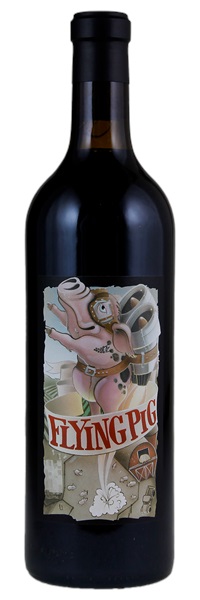Removed from protected passive storage in a temperature controlled home; Obtained by inheritance; Consignor is second owner

Image above is an example. To view the image of the lot, click the item number.
Estimate
I love its texture, and it's incredibly pure, refined, and seamless, with medium to full bodied richness as well as a Bordeaux-like nose of blackcurrants, mulled cherries, sandalwood, leafy herbs, sweet earth, and hints of charcoal. It has some upfront appeal, yet the tannins emerge with time in the glass...
...bursts from the glass with a bouquet of spiced citrus rinds giving way to dusty rose, wild blueberries and wet stone...silky-smooth with medium-bodied weight and vividly ripe wild berry fruits complemented by rosemary and olive nuances. Residual acidity keeps the mouth watering through the dramatic finale, as notes of licorice and peppery herbal tones resonate throughout.
...red bell pepper and red rose petals combine with sagebrush, wet stone and suggestions of loganberry preserves...comes off very seamless and soft, with a smooth texture. Rich dark fruits and a dusting of white pepper parade with gravel, barberry and garrigue notes on the palate... Finishing long...
...nose of juicy red and black fruit, accented by notes of cured meat, sweet paprika and toasted thyme. Medium-bodied with silky tannins. Succulent fruit with notes of vanilla, grated nutmeg and cardamom.
...nose expresses dark red and black fruit aromas with fresh notes of sage and sweet red pepper. Medium to full-bodied...has a bright and flashy flavor profile, a polished frame and savory notes before an umami essence gives way to hints of black truffle and firm tannins...elegant and fresh.
The aromas fascinate, with notes of ember, coffee bean, green pepper, licorice and green flower, showing detail and complexity. Soft, sumptuous flavors follow, displaying elegance.